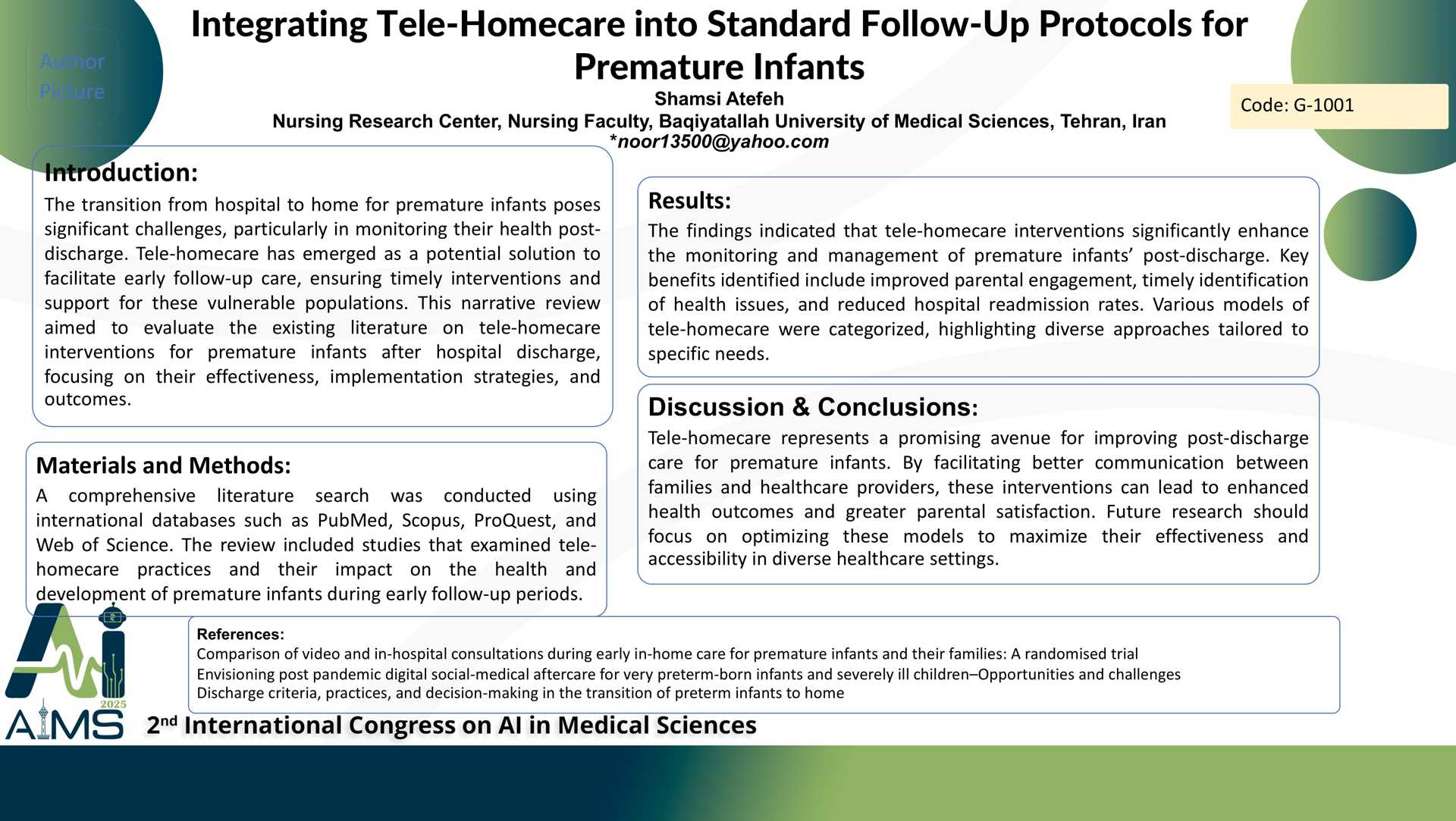ادغام تله هم کر در پروتکل های استاندارد پیگیری برای نوزادان نارس
کد: G-1071
نویسندگان: Atefeh Shamsi * ℗
زمان بندی: زمان بندی نشده!
برچسب: سیستم های تصمیم یار بالینی
دانلود: دانلود پوستر
خلاصه مقاله:
خلاصه مقاله
Background and Aims: The transition from hospital to home for premature infants poses significant challenges, particularly in monitoring their health post-discharge. Tele-homecare has emerged as a potential solution to facilitate early follow-up care, ensuring timely interventions and support for these vulnerable populations. This narrative review aimed to evaluate the existing literature on tele-homecare interventions for premature infants after hospital discharge, focusing on their effectiveness, implementation strategies, and outcomes. Method: A comprehensive literature search was conducted using international databases such as PubMed, Scopus, ProQuest, and Web of Science. The review included studies that examined tele-homecare practices and their impact on the health and development of premature infants during early follow-up periods. Results: The findings indicated that tele-homecare interventions significantly enhance the monitoring and management of premature infants’ post-discharge. Key benefits identified include improved parental engagement, timely identification of health issues, and reduced hospital readmission rates. Various models of tele-homecare were categorized, highlighting diverse approaches tailored to specific needs. Conclusion: Tele-homecare represents a promising avenue for improving post-discharge care for premature infants. By facilitating better communication between families and healthcare providers, these interventions can lead to enhanced health outcomes and greater parental satisfaction. Future research should focus on optimizing these models to maximize their effectiveness and accessibility in diverse healthcare settings.
کلمات کلیدی
Tele-homecare, premature infants, post-discharge care, telehealth
